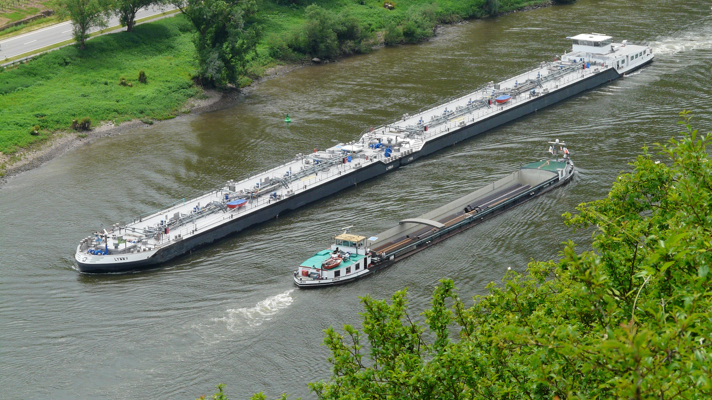Minister Van Nieuwenhuizen (Infrastructure and Water Management) is allocating 1.5 million euros to boost the development of sustainable shipping engines for inland navigation. With the money, the Minister will support the manufacturers of ship engines in the costly process of further developing and producing sustainable ship engines.
Van Nieuwenhuizen: ‘Inland navigation is a good alternative to transporting our goods on the busy roads. However, it is important to reduce the emissions of inland vessels. Cleaner engines can contribute to this.’
The development of sustainable engines costs a lot of money. Because the inland navigation sector is only a small market for many engine suppliers, the development of clean engines is often unprofitable. With the new subsidy scheme, manufacturers and developers can receive up to 250,000 euros for their project. A total of 500,000 euros in subsidy will be available in 2020, another 1 million euros in 2021. Applications for this year can be submitted to the Expertise and Innovation Centre for Inland Navigation (EICB) until 16 November 2020. The deadline for submitting an application for next year is 1 March 2021.
The scheme for the development and production of cleaner marine engines complements the “Temporary subsidy scheme for sustainable inland navigation vessels”, which is still in preparation. The scheme, which is expected to start at the end of this year, aims to make the existing inland navigation fleet more sustainable and will be implemented by the Rijksdienst voor Ondernemend Nederland (RVO).
Zero Emission Services
Earlier this year, Zero Emission Services (ZES) was set up with financial support from the Ministry of Infrastructure and Water Management. ZES focuses on replaceable battery containers with green electricity, charging stations, technical support and an innovative payment concept for ship owners in order to make inland shipping even more sustainable.
The initiatives stem from the Green Deal for ocean going ships, inland navigation and ports (Green Deal Zeevaart, Binnenvaart en Havens), which was initiated last year and in which the central government, provinces, ports, maritime trade organisations, shippers, transporters, banks and knowledge institutes join forces to make shipping more sustainable.








